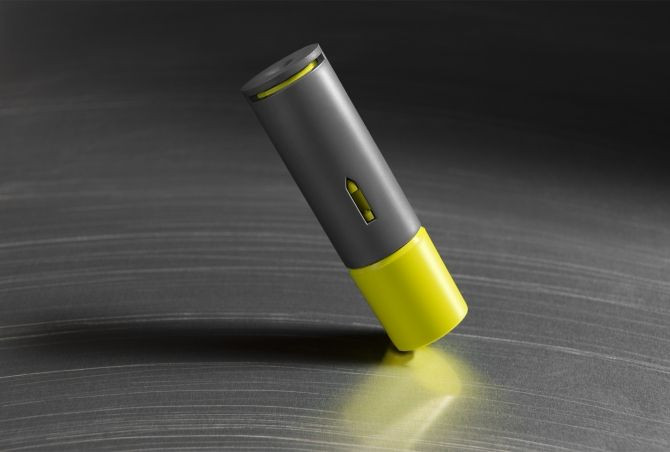FDA Charges AeroShot Caffeine Inhaler for "False" and "Misleading" Statements

Federal regulators have issued a warning letter to the maker of inhalable product AeroShot Pure Energy for “false or misleading statements” in the labeling and the agency also raised concerns about the use of the caffeine inhaler by children and adolescents and when used in combination with alcohol.
The Food and Drug Administration on Tuesday said Massachusetts-based Breathable Foods Inc. had contradictory labeling on their product, in a statement that comes after U.S. Sen. Charles Schumer had called for the agency to review the safety and legitimacy of the breathable caffeine.
The agency said that the lipstick-sized AeroShot being marketed as “breathable energy” may confuse customers when the company claims that the product is actually supposed to be swallowed.
"Your labeling is false and misleading because your product cannot be intended for both inhalation and ingestion," the FDA said in a letter to the manufacturer Breathable Foods. "Consumers may attempt to inhale your product, causing it to enter the lungs. FDA is concerned about the safety of any such use."
"Caffeine is not normally inhaled into the lungs and the safety of doing so has not been well studied," the FDA said in a statement, and although the company said on its website that the AeroShot particles are too big to enter the lungs, it did not have research evidence to back up its claim.
The agency noted while the packaging said that the product is "not recommended for people ... under 18," the Breathable Foods website refers to AeroShot as a possible enhancement for activities like “hitting the books” and “studying in the library”.
"These activities are commonly performed by children and adolescents," the letter says. "Indeed, your reference to these activities seems to target this population."
The FDA said that they were also concerned over links to party videos and news articles that refers to the product being mixed with alcohol on the AeroShot website.
"Even though these news items express health concerns about taking AeroShot while drinking alcohol, your posting of the news items on the website where you promote and sell AeroShot publicizes such use," the letter states.
"We plan to work closely with the FDA to meet their requests for information and labeling changes to ensure compliance with dietary supplement requirements," Tom Hadfield, CEO of Breathable Foods, said in a statement. "AeroShot delivers a mix of B vitamins and caffeine to the mouth for ingestion and is not 'inhaled' into the lungs. AeroShot is not recommended or marketed to persons under 18 or for use with alcohol."
Breathable Foods has 15 business days to respond to the agency’s warning letter.
"You should take prompt action to correct the violations cited above," the FDA said in the letter. "Failure to do so may result in regulatory action without further notice. Such action may include, but is not limited to, seizure or injunction."
Breathable Foods announced the official launch of AeroShot late January in Boston and New York, and the product had also been available in France.
Each lip-stick sized inhaler cartridge costs $2.99 is good for six to eight puffs and can be bought at convenience, liquor or online shops. The caffeine inhaler works by pressing the grey and yellow plastic canister to the mouth and pushing down the button, to release a powdery gust of 100 milligrams of caffeine powder, equivalent to the amount in a large cup of coffee, B vitamins, and niacin.
"Even with coffee — if you look at the reaction in Europe to coffee when it first appeared — there was quite a bit of hysteria," the Harvard University professor and AeroShot inventor David Edwards had told AP in February. "So anything new, there's always some knee-jerk reaction that makes us believe 'Well, maybe it's not safe.'"
Published by Medicaldaily.com



























